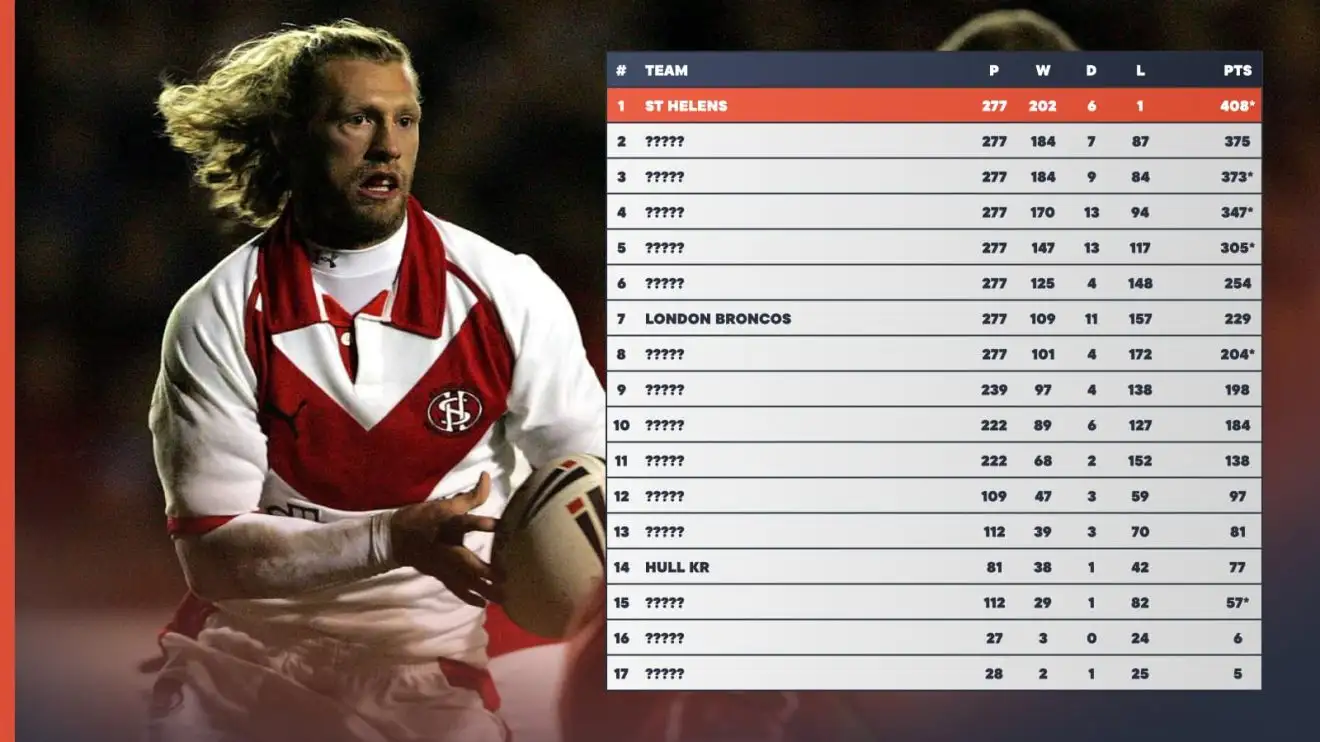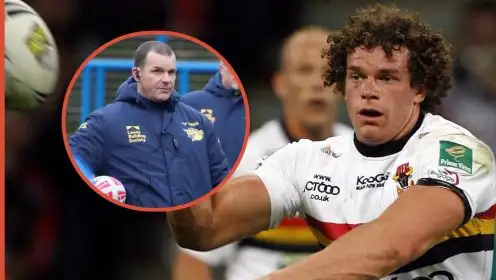Super League table of the 2000s: Wigan Warriors only fourth as SIX clubs have points deductions

How would a Super League table solely of results in the 2000s look?
The 2000s was a very different time: both in terms of the world in general and when it comes to how Super League used to look.
As the new millennium arrived, the competition was still very much in its infancy: with clubs who have been out of Super League for over a decade in the modern era considered mainstays back then. Some clubs who played back then no longer exist at all, or have had to reform and start from the very bottom.
And across the ten seasons that were played in the 2000s – from 2000 to 2009 – the overall league table makes for compelling viewing.
17 teams in total played in Super League across those years, with the competition consisting of 12 teams right up until the end of the decade, when it expanded to 14.
Eight of those played in all ten editions of Super League in the 2000s: and we’ll get to those later. For now though, let’s start at the bottom and look at how the table would look if every result from the decade was added together to make a combined league..
At the foot of the table are two teams who played in just a solitary Super League season in the 2000s. Leigh’s one season in the competition in 2005 yielded just two wins and a draw, meaning they’re bottom. Just ahead of them are Crusaders, who won three games from 27 in 2009.
Next is Halifax, who were going under the Blue Sox guise during their time in Super League. They actually did begin the decade quite well but by 2003, they were relegated: on 0 points! That’s because their one win of that season was cancelled out by a two-point deduction for a salary cap breach – a theme that’s more common towards the top of this table.
Widnes, who came into Super League midway through the decade, are next, behind Catalans Dragons in 12th, Salford Red Devils in 11th and Castleford Tigers in 10th. The last non-ever present of the 2000s is Huddersfield, with 198 points to their name.
Now, onto the eight teams who played in every single one of the 277 regular season rounds in the 2000s. We start with Wakefield Trinity in 8th – who also had a two-point deduction for a cap breach during the decade.
Almost 30 points further ahead are London Broncos – who by the end of the 2000s, became Harlequins, but were a pretty consistent side at the start of the decade before fading somewhat later on.
Warrington Wolves‘ trajectory was almost the opposite, getting stronger towards the end of the 2000s thanks to a plethora of off-field factors. They’re 6th on this list with 254 points: winning 125 of their league games in the decade.
Then there’s a big jump of almost 50 points to another team who had a salary cap breach during this period: Hull FC. They are still on 305 points though, and in 5th place.
Then, as anyone who watched Super League during this decade would have expected, it is the big four of the 2000s. Wigan Warriors were actually deducted SIX points for two separate cap breaches, but they’re still 4th on 347 points.
Bradford Bulls should have been 2nd, but they’re actually in 3rd due to four points’ worth of deductions for two cap breaches of their own. That reduces their tally to 373 points – two behind the team who pip them to second spot and who won their first Super League title in 2004 against the Bulls, Leeds Rhinos.
And by the end of the 2000s, Leeds would be one half of an utterly dominant duo, with the other half the team at the summit here, St Helens. They won over 200 of their 277 regular season games – and even with a cap breach and a two-point deduction, they amassed 408 points.

What table would you like us to do next? Let us know in our all-new comments section down below!
READ NEXT: NRL owners approached over potential Super League investment as financial outlook disclosed



